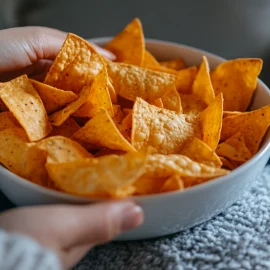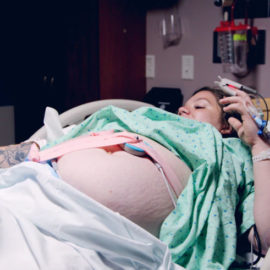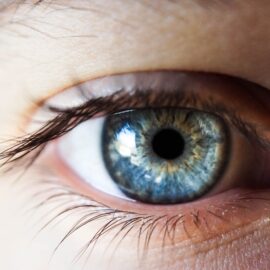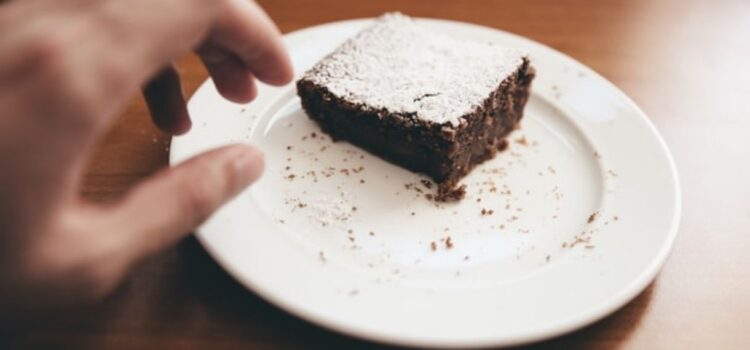
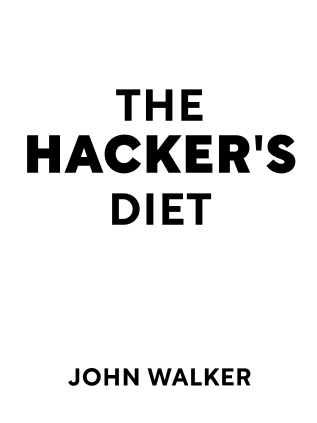
This article is an excerpt from the Shortform book guide to "The Hacker's Diet" by John Walker. Shortform has the world's best summaries and analyses of books you should be reading.
Like this article? Sign up for a free trial here .
Why is losing weight so hard? If the concept of weight loss is so simple—burn more calories than you eat— then why isn’t everybody a healthy weight?
Although the concept of weight loss is simple—calories in/calories out—it isn’t easy to implement in practice. Many people lack the motivation or willpower to eat less food, to pass up that donut, or to pay attention to the number of calories they’re putting in their body.
Here is how John Walker explains the struggle of weight loss in his book The Hacker’s Diet.
Simple Doesn’t Mean Easy
There’s a story about financial traders on Wall Street. A novice asks a guru, “How do you make money in the market?”
The guru responds, “It’s simple: buy low, sell high.”
The beginner replies, “How can I learn to do that?”
The guru responds, “Ah — that takes a lifetime.”
Simple doesn’t mean easy.
How do you lose weight easily? It’s simple. Eat fewer calories than you’re burning each day. But simple doesn’t mean easy.
What weight loss really requires is:
- A fixation on the goal you want to achieve
- An understanding of what’s required to achieve the goal
- Developing a rational plan to meet your goal
- Carrying out the plan
- Willpower and a high tolerance for pain
This is what’s needed in any of life’s hurdles. This is precisely what losing weight achieves.
The author is John Walker, founder of software company Autodesk. He spent most of his life fat, before figuring out how the body and weight loss works. Then, in less than a year, he lost 60 pounds and kept it off forever.
The Hacker’s Diet is an engineer’s approach to weight loss, described in terms of control systems, feedback loops, measurement noise reduction, and practical problem-solving.
Calories: It’s Simple
The human body is a simple system. Every day, your body needs energy to function — to keep the body warm, to generate new cells, to think. Energy is usually measured in calories.
You eat food to gain energy. Your weight change depends directly on how many calories you eat, and how many calories you burn.
- If you eat the exact same calories as your body needs to function, you do not gain any weight.
- If you eat more calories than your body needs, the excess calories are stored in fat. You cannot gain weight beyond what you eat.
- If you eat fewer calories than your body needs, the deficit is made up by burning fat.
(Shortform note: To make sure you understand this, here’s an analogy: consider a fireplace that burns wood at a particular rate.
- If you provide wood faster than the fireplace is burning, you get a stockpile of wood logs. This is like your body storing fat and gaining weight.
- If you stop chopping wood, to continue feeding the fire, you’ll draw from the stockpile and the stockpile will go down. This is like your body burning fat and losing weight.)
This is the basis of “Calories In Calories Out.” This is an inviolable rule that applies to every living thing.
The number of calories you burn each day depends on a few factors: 1) your height and build, 2) your activity level, 3) your gender. Very generally, the average normal-weight man burns about 2000 calories a day; the average woman about 1700 calories. If you’re taller than average, have a physically demanding job, exercise a lot, or are overweight, you burn more than this. Take the opposite of all of these—if you’re shorter, sit most of the day, don’t exercise, and are underweight—and you burn less than this.
To lose one pound of fat, you need to burn 3500 calories more than you eat. Let’s say you burn 1800 calories a day. If you eat 500 fewer calories each day (1300 calories), you will lose one pound each week.
Likewise, to gain one pound of fat, you need to eat 3500 calories more than you burn. This is not hard to do. 2 cans of beer have 300 calories; one donut has 250 calories. If you ate one donut’s worth of calories each day above what you normally burn, you would gain 1 pound every 2 weeks. In a year, you would gain 26 pounds.
Again, weight loss is simple in principle. To lose weight, you need to eat fewer calories than you burn each day. To maintain your ideal weight, you need to eat the same number of calories as you burn each day. Anyone who practiced both regularly would be at their ideal weight for the rest of life.
Does What You Eat Matter?
For the purposes of weight loss, what you eat matters far less than the calories that you eat. You could lose weight by eating a diet entirely of butter, as long as you’re running a calorie deficit.
Of course, if you can, it’s better to eat a more nutritious diet, balanced among the major macronutrients: carbs, proteins, and fats. It’s also better to get sufficient vitamins in your diet. If you eat a varied diet, it’s very unlikely you’ll run short of a vitamin — if you’re worried, just eat a multivitamin.
(Shortform note: This is true assuming you can methodically stay under the calorie target. But for many of us, what you eat also affects how much you want to eat:
- Some foods make you feel more full for the same number of calories. Eating 200 calories of greens will fill your entire stomach; eating 200 calories of Oreos will barely make a dent. Eating the first will keep you full for longer; eating the second will make you hungry.
- Some foods are plain addictive and it’s hard to control yourself. Foods like Doritos and Oreos give you Food Highs and it’s easy to blow past your calorie target.)

———End of Preview———
Like what you just read? Read the rest of the world's best book summary and analysis of John Walker's "The Hacker's Diet" at Shortform .
Here's what you'll find in our full The Hacker's Diet summary :
- An engineer’s approach to weight loss
- Why losing weight is so hard even though it's so simple
- What you have to do to maintain your ideal weight for the rest of your life

